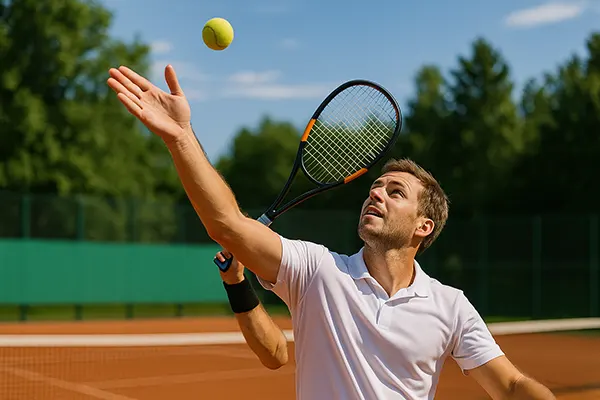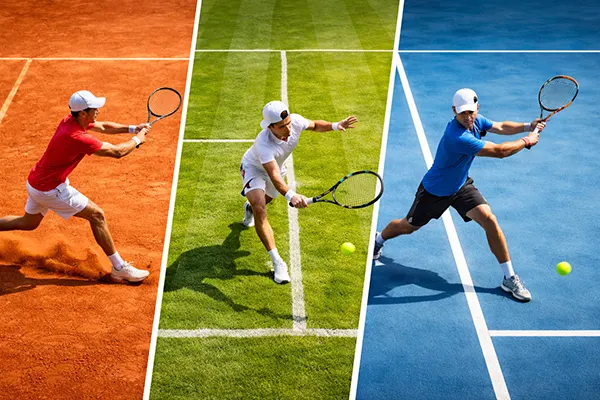
Psychology of Tennis: How Emotions Influence Victories and Defeats
Tennis is a sport where precision, endurance, and technique are only part of the formula for success. Equally decisive is the player’s mental state. Emotional stability, confidence, and the ability to manage pressure often determine who triumphs and who falters on the court.
The Emotional Dynamics of Tennis
Tennis is unique among sports for its isolation: there are no teammates to rely on, no timeouts for regrouping. Every point is a battle between the athlete’s physical readiness and mental composure. This intense environment amplifies emotional responses, making self-control a vital component of every match.
Positive emotions such as motivation, excitement, and confidence enhance performance. They help players maintain focus, react faster, and make strategic decisions under pressure. On the other hand, frustration and anxiety can narrow a player’s vision, causing unforced errors and poor judgment.
According to sports psychologists in 2025, emotional intelligence training has become as common as physical preparation. Modern tennis academies include sessions focused on stress recognition, emotional regulation, and mental recovery after defeats.
Recognising and Managing Pressure
Pressure in tennis can come from multiple sources: expectations from coaches, fans, or oneself. Learning to transform pressure into motivation is a skill that distinguishes elite players from the rest. Cognitive behavioural techniques, mindfulness, and breathing control are now standard tools for emotional stability.
Top players such as Novak Djokovic and Iga Świątek frequently mention mental strength as their primary asset. They practice self-reflection, visualisation, and pre-match mental routines to maintain focus. These rituals prevent emotional escalation during critical moments, allowing them to stay strategic instead of reactive.
Experts also emphasise the role of acceptance. Accepting errors and setbacks helps players recover quickly instead of dwelling on mistakes. This mindset supports resilience, the backbone of sustained performance across long tournaments.
The Role of Emotional Intelligence in Tennis
Emotional intelligence (EI) encompasses the ability to recognise, understand, and manage one’s own emotions and those of others. In tennis, EI translates into self-awareness, adaptability, and composure under pressure. It helps players respond to challenges without losing control of their emotions.
In 2025, many professional coaches integrate emotional intelligence development into training. They use psychological profiling, biofeedback, and simulation exercises to help athletes identify emotional triggers. These methods allow players to predict and manage emotional spikes before they affect performance.
Furthermore, high EI assists players in reading their opponents’ emotional states. Recognising signs of frustration or fatigue can provide a tactical advantage. Skilled competitors use this awareness to adjust tempo, exploit weaknesses, or maintain their psychological dominance.
Recovery and Mental Balance
After an intense match, emotional recovery is as important as physical rest. Players who fail to process their emotional experiences risk mental burnout. Therefore, top-level training programmes now include emotional decompression routines: journaling, meditation, or conversations with sports psychologists.
In recent years, virtual reality (VR) has been introduced into recovery programmes. It allows players to relive match moments, analyse emotional reactions, and correct cognitive distortions. This reflective approach enhances learning and prevents emotional fatigue.
Maintaining emotional balance off the court—through hobbies, social connections, and adequate rest—also plays a crucial role. Balanced athletes sustain motivation longer and demonstrate more consistent results across the season.

When Emotions Define the Outcome
History has shown that emotional control can determine match outcomes even more than technical skill. Moments of anger or overconfidence often lead to unforced errors or strategic blunders. Conversely, composure under pressure often brings legendary comebacks.
Data from 2025 performance analytics confirms that emotionally stable players win up to 20% more tiebreaks than those prone to frustration. The ability to stay calm under stress correlates with better decision-making and endurance during long matches.
Emotions also influence crowd interaction. Players who manage their energy and attitude effectively often win the audience’s support, which boosts morale and affects the opponent psychologically. Emotional management, therefore, becomes a silent weapon in every professional’s arsenal.
Building Long-Term Mental Strength
Mental resilience in tennis develops over years of structured psychological training. Athletes combine therapy, journaling, and reflective coaching to strengthen self-belief. They learn to interpret setbacks as feedback rather than failures, maintaining long-term motivation.
Sports federations and major tournaments in 2025 have also increased access to on-site psychologists and emotional support teams. This initiative reflects a growing recognition of mental health as an integral part of athletic excellence.
Ultimately, tennis is not merely a test of skill but of emotional mastery. The ability to remain calm, confident, and focused—regardless of scoreline—distinguishes champions from competitors. Emotional intelligence and mental discipline are, and will remain, the keys to victory on the global stage of tennis.



